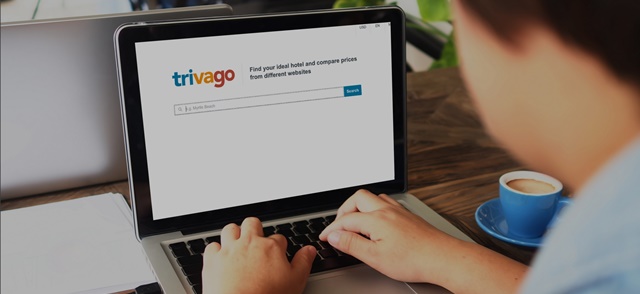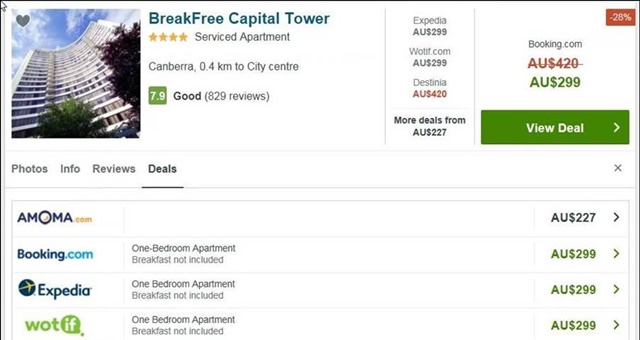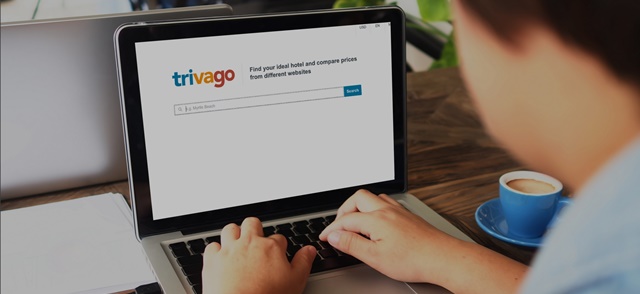
Proceedings have been instituted by the Australian Competition and Consumer Commission (ACCC) against Expedia-owned hotel aggregation firm Trivago for alleged breaches of Australian Consumer Law, which claim the company mislead consumers in its hotel price representations.
The action stems from activity dating back to December 2013 where Trivago allegedly prioritised advertisers “willing to pay the highest cost per click fee” to Trivago in its television advertisements in which it claimed to be an impartial price comparison service for hotel rooms around the world. The ACCC said that Trivago was intending to present its services as an objective service that would help consumers find the best possible price for the same hotel room. The television commercial alleged as having breached the law aired over 400,000 times.
According to an ACCC statement today, Trivago’s website highlights one price as being the best available from a variety of sources (including parent company Expedia as well as competitors including Hotels.com, Amoma and many others including the hotel directly). However the ACCC says it has found multiple cases where the highlighted price indicated as being the cheapest was not the case and that better rates were available elsewhere.
ACCC Chairman Rod Sims said consumers may have formed an inaccurate impression that Trivago’s highlighted price was the best available as a particular hotel when instead, rankings were based on the highest cost per click that the site could attract from advertisers.
“We allege that because of the design of Trivago’s website and representations made, consumers were denied a genuine choice about choosing a hotel deal, by making choices based on this misleading impression created by the Trivago website.”
An example of an offending hotel price representation (below) was taken on 01 April 2018 and shows a property’s best highlighted price as being $299, however cheaper rates were available if a consumer clicked on the ‘More Deals’ button.

A further charge from the ACCC alleges Trivago’s practice of displaying ‘strike-through’ comparisons were misleading as the site showed consumers the price for a standard room at a hotel when the strike-through price was for a more luxurious or higher room category at the same hotel, indicating greater savings were on offer than were actually available.
“We also allege that by not making genuine room price comparisons, consumers would likely have paid more than they otherwise would have for the same hotel. Further, hotels may have lost potential business as a result of this alleged conduct,” Sims added, with data from an ACCC investigation showing consumers overwhelmingly clicked on the most prominently displayed offer for each hotel.
““This case highlights growing concerns the ACCC has in relation to comparison platforms, and on how algorithms present search results to consumers,” Sims added.
HM is attempting to contact Trivago for its response.

